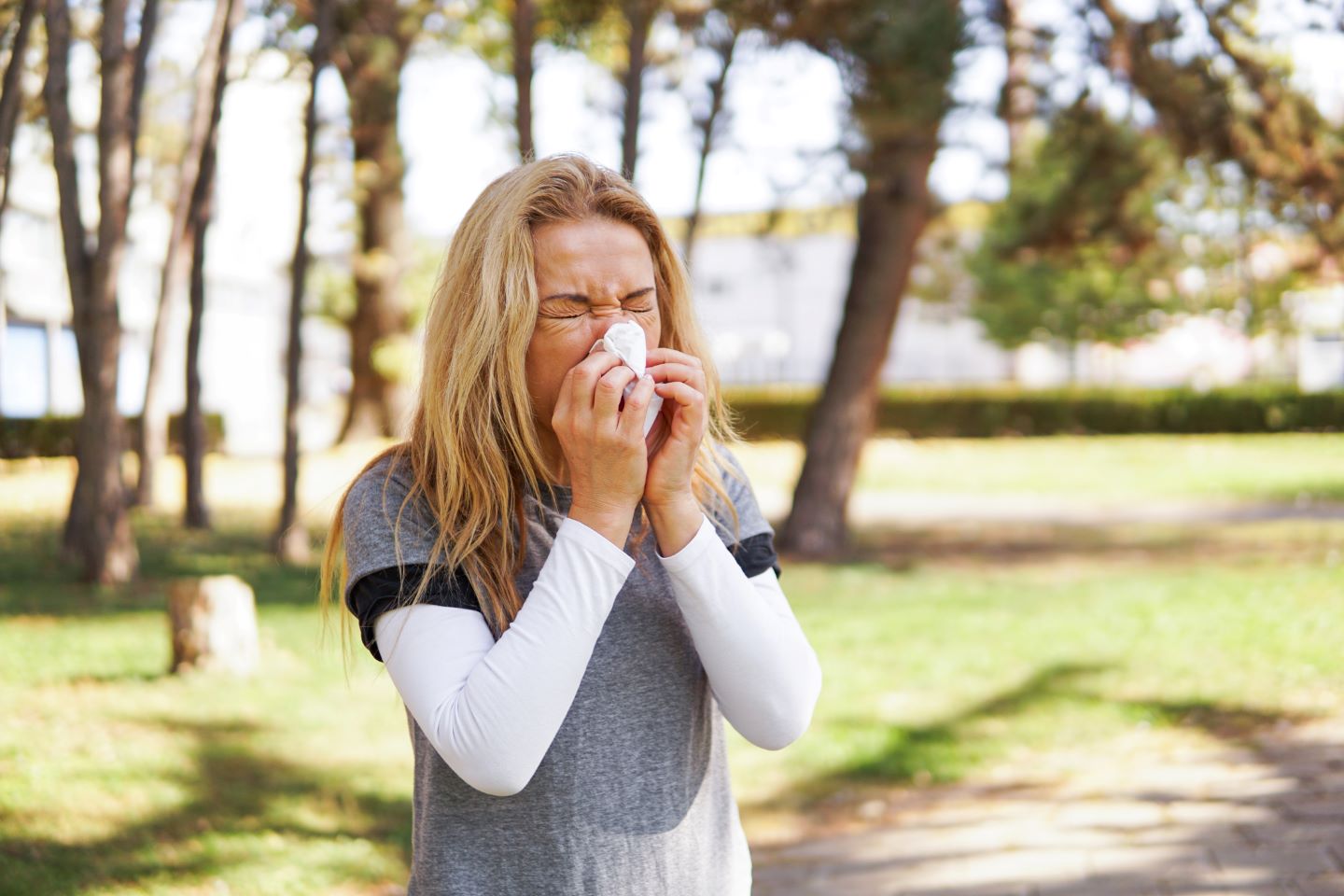
Seasonal allergies can significantly impact one’s quality of life, especially during peak allergy seasons. As flowers bloom and pollen fills the air, millions of individuals battle sneezing fits, itchy eyes, and nasal congestion.
While many can manage these symptoms with over-the-counter remedies, there comes a point where seeking medical attention becomes necessary.
Understanding Seasonal Allergies
Allergies, also known as allergic rhinitis or hay fever, occur when the immune system overreacts to environmental allergens. These allergens commonly include tree pollen, grass, ragweed, and mold.
Symptoms of allergies can range from mild to severe and may vary from person to person. Mild symptoms typically include sneezing, a runny or stuffy nose, and itchy or watery eyes. However, in more severe cases, individuals may experience persistent congestion, severe sneezing fits, sinus pressure, headaches, and even temporary loss of smell or taste.
The impact of allergies extends beyond physical discomfort; it can significantly affect daily activities and productivity. Fatigue, irritability, and difficulty concentrating are common consequences that can disrupt work, school, and overall quality of life. Additionally, allergies may exacerbate other conditions, such as asthma, leading to more severe complications if left untreated.
Signs It’s Time to Head to Urgent Care
Recognizing when it’s necessary to seek medical attention for allergies is essential for managing and preventing potential complications. Here are several signs indicating it may be time to consult a healthcare provider:
- Persistent or Severe Symptoms: If you experience persistent or severe allergy symptoms that significantly impact your daily life, it’s important to seek medical advice. Symptoms such as severe nasal congestion, persistent coughing, recurrent sinus infections, or allergic reactions may require medical evaluation and a tailored treatment plan.
- Lack of Relief from Over-the-Counter (OTC) Medications: While OTC allergy medications can relieve many individuals, some may find these treatments ineffective in managing their symptoms. If you’ve tried various OTC medications without success or if you’re experiencing adverse reactions to these treatments, consulting a healthcare provider can help identify alternative treatment options or underlying issues contributing to your symptoms.
- Complications: Allergies can sometimes lead to complications such as sinus infections (sinusitis), ear infections (otitis media), or exacerbation of underlying conditions like asthma. If you develop complications related to your allergies, it’s crucial to seek medical attention promptly to prevent further complications and receive appropriate treatment.
- Interference with Daily Activities: If your allergy symptoms significantly interfere with your daily activities, work, school, or sleep, it may be time to see a healthcare provider. Chronic allergies can affect your productivity, mood, and overall quality of life, and addressing these symptoms with medical intervention can help you regain control and improve your well-being.
Treatment Options for Allergies
Dealing with allergies can be challenging, but there are several effective treatment options available to help manage symptoms and improve your quality of life.
Over-the-counter medications such as antihistamines, oral decongestants, and nasal corticosteroid sprays can relieve common symptoms like sneezing, itching, and nasal congestion.
However, for those with more severe or persistent symptoms, prescription medications may be necessary. Additionally, immunotherapy options, such as allergy shots or sublingual immunotherapy tablets or drops, can help desensitize the immune system to specific allergens over time, reducing the severity of allergic reactions.
Alongside medication, lifestyle changes and home remedies can play a significant role in managing symptoms. These may include avoiding known allergens, using air purifiers, practicing nasal irrigation, and investing in allergen-proof bedding covers.
Looking for “Urgent Care Near Me?” Choose AFC Panama City Beach FL
AFC is open every day of the week with extended hours, ensuring you don’t have to put your busy day on hold to seek treatment. Whether you’re experiencing sneezing, congestion, or itchy eyes, our professional medical staff is ready to provide quality urgent care to alleviate your symptoms.
At AFC, we understand the importance of convenience in healthcare. That’s why we offer quick wait times and efficient service, allowing you to get in, get treated, and get back to your day as soon as possible. Our team is dedicated to providing personalized care to each patient, ensuring you receive the attention and treatment you deserve.
One of the benefits of choosing an AFC location for your seasonal allergy treatments is our ability to care for the whole family. Whether you, your children, or other family members experiencing allergy symptoms, our team is equipped to provide comprehensive health care to everyone. Additionally, we accept most insurance policies, making it easy and convenient to access the care you need without worrying about financial barriers.
Contact AFC Panama City Beach FL today and experience the difference our trusted urgent care centers can make in your life.


